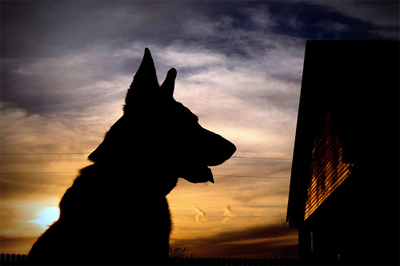Could Your Community Do With a Neighborhood Watch Program?
 Neighborhood watch programs are in operation in countless states and it’s not surprising considering the rate of crime in most parts. Have you thought about organizing a community watch but not sure where to start? Here we look at the steps to take and the benefits one can provide a community.
Neighborhood watch programs are in operation in countless states and it’s not surprising considering the rate of crime in most parts. Have you thought about organizing a community watch but not sure where to start? Here we look at the steps to take and the benefits one can provide a community.
In the 1960s the official Neighborhood Watch Program began in response to an incident which saw 28-year-old Brooklyn resident Kitty Genovese raped and stabbed to death by a 29-year-old Queens male in 1964.
It is believed that despite a number of bystanders within proximity of the attack taking place they failed to act in order to help, thus falling into the social psychological phenomenon known as bystander effect – the larger the number of witnesses to an incident the less likely it is that a victim will receive help.
It is thought that this sense of apathy, which was evident in Genovese’s murder, is often linked with life in big cities such as New York. However, regardless of where you live there are countless benefits associated with starting a neighborhood watch.
According to USAonWatch-National Neighborhood Watch Program, since 2002 they have registered over 22,000 Watch Groups nationally. Furthermore those who are part of the program are acting as the ‘eyes and ears’ of local law enforcement to ensure their neighbourhood becomes less vulnerable to crime.
So how does one go about starting a program up?
Neighborhood Watch Programs are, simply put, the perfect opportunity for citizens to meet their neighbors so that they can talk about the ways in which to better protect their homes, themselves and how they look out for each other as they all work together with their local police department.
Thankfully, starting a watch program does not involve a set of formal procedures to go through, but is the simple process of banding neighbors together so that they can discuss the issues within their community and calling in a police officer who will go through what they need to do.
It’s important to bear in mind though that the police don’t run the program, the neighbors do. The police are there to provide as much advice as they can with regards to how they can stay safe, the security measures they can put into place and how to avoid dangerous situations.
Neighborhood Watch Programs are the link between police departments and their community. Without them they would not be able to effectively do their job. It’s also the ideal setting to build trust between police and neighbors, which is lacking in today’s society. This way both sides can find out who is in the community, the lives of the people in it and what makes the community what it is.
Here are points to consider:
- Define the area your Watch will cover
- Determine where you will meet on a monthly basis
- Look at the crime in your area
- Contact your local police department and ask for the Neighborhood Watch Coordinator
- Recruit as many neighbors as possible
- Talk to your neighbors
- And just as important, remain active
